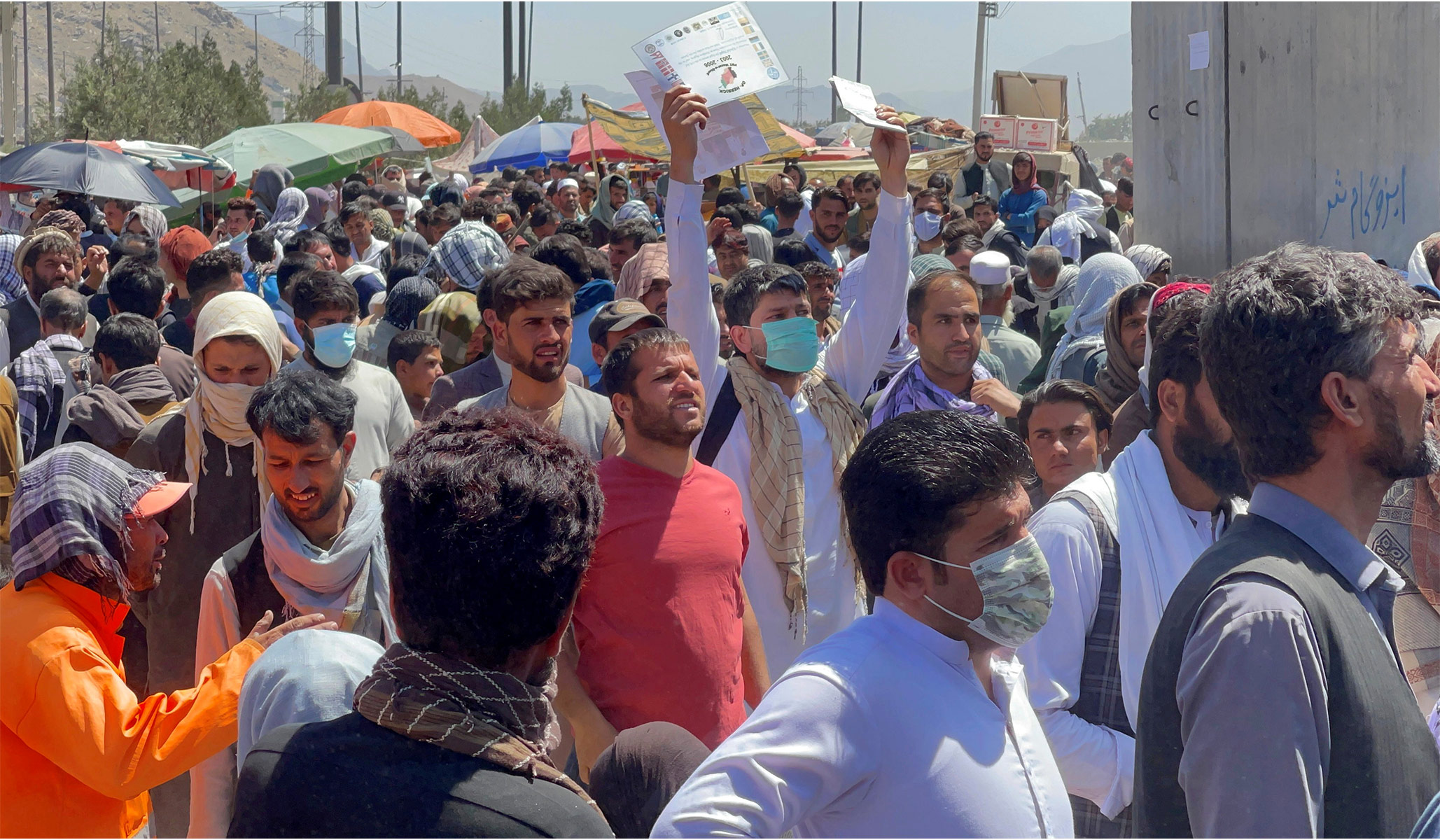With a terror attack today outside the Kabul airport, the U.S. evacuation from Afghanistan looks set to end the way it began — in chaos.
Still, the harrowing events of the last two weeks, with more sure to come, shouldn’t obscure the long-term blow to American national security. The Biden pullout, eschewing even a limited U.S. footprint and carried out in a manner that will dissuade valuable informants from cooperating with American agencies, is a devastating blow to the counter-terrorism strategy that, for 20 years, has prevented a reprise of the 9/11 attacks.
All the talk of nation-building and “forever wars” makes it easy to forget why President George W. Bush, with nigh-unanimous congressional backing, dispatched American forces to Afghanistan. To say our nation had been attacked is almost an understatement. Nearly 3,000 Americans were slaughtered on 9/11, a death toll higher than that suffered in the Pearl Harbor attack that catapulted our nation into World War II.
The 9/11 terror strikes were not an isolated incident. They were the culmination of a series of jihadist operations against the United States that began in the early Nineties and intensified after 1996. That is when al-Qaeda, which had emerged out of the Afghan mujahideen’s 1980s jihad against the Soviets, re-established its headquarters in Afghanistan.
The terrorists had been enticed there because the like-minded Taliban had seized power. With the protection and encouragement of the host regime, Osama bin Laden openly declared war against the United States. His al-Qaeda network followed this up in 1998 by bombing the American embassies in Nairobi, Kenya, and Dar es Salaam, Tanzania, killing over 200 people. The plot worked because the Afghan haven gave al-Qaeda the time and space it needed to surveil American targets in the region, study their vulnerabilities, and train saboteurs.
After a failed 1999 attempt to blow up one of our naval destroyers, the USS The Sullivans, al-Qaeda again exploited its Afghan sanctuary to assess what went wrong and how to get it right the next time. The ensuing months of planning and training resulted in the bombing of a different destroyer, the USS Cole, as it docked in the Gulf of Aden, off of Yemen — killing 17 U.S. Navy servicemen and nearly sinking the vessel.
Eleven months later came the 9/11 attacks.
As we prepare to mark the 20th anniversary of that day, we must remember that, though shocking, this large-scale strike against the homeland was foreseeable.
The Taliban regime granted al-Qaeda years of stable command and control, abundant training facilities, established recruitment practices, reliable fundraising channels, and the logistical support of state sponsors that shared its Islamist goals. What had been a transcontinental network of loosely connected jihadist cells thus had what it needed to prosecute a war. The operational partnership with an anti-American regime empowered al-Qaeda to project power on the scale of a nation-state.
When President Bush asserted 20 years ago that every nation must decide whether it was with us or with the terrorists, he conveyed our country’s realization that it could not abide situations in which capable terrorist organizations had safe harbor and support from foreign governments. Since then, jihadists have not had that in Afghanistan. Until now.
Terrorist strikes on the scale of 9/11 don’t happen often, despite the ruthlessness of our jihadist enemies, because they are hard to pull off. As our government finally grasped, they can be prevented by denying terrorist organizations the time, space, and insulation needed for coordination and execution.
In 2002, with al-Qaeda routed and the Taliban deposed, the main U.S. mission in Afghanistan became counterterrorism. American boots on the ground promoted intelligence collection while depriving the enemy of safe hideouts, let alone stable command-and-control. The real-time intelligence streams combined with rapid-strike capability to eliminate any possibility of elaborate planning, much less training, reconnaissance, cell coordination, and long-distance strikes.
President Biden is deluding himself (again) if he believes we can execute the still-vital counter-terrorism mission with no in-country intelligence capacity and “over the horizon” air power that is over a thousand miles away. His claim that this will suffice in Afghanistan because we do not have a U.S. military presence in other dangerous countries is fatuous. In point of fact, we do keep a modest presence in many such countries — with the grateful military cooperation of governments that oppose jihadists. But in Afghanistan, the challenge is not merely jihadist cells; it is that highly capable, incorrigibly anti-American jihadist organizations will once again have a military alliance with the Taliban, an incorrigibly anti-American Islamist regime.
That was the situation that obtained in Afghanistan from 1996 through 9/11. It was a national-security catastrophe for the United States. Congress needs to reacquaint itself with that history, examine the ramifications of the Taliban’s ascendancy for our counter-terrorism needs, and ask the administration the hard questions that President Biden is avoiding.
